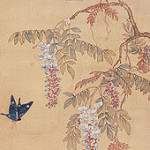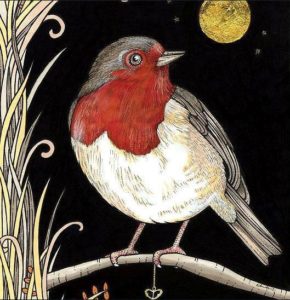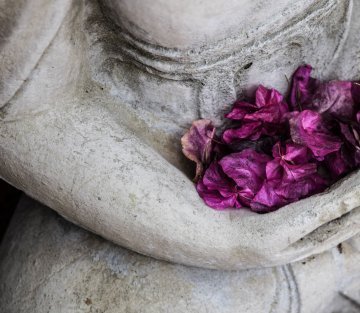 The question, itself, must be a Zen koan, because, really, there is no answer to sudden death. There is no making sense of the unreal, surreal, or unbelievable. Yet, it happens, day in and day out.
The question, itself, must be a Zen koan, because, really, there is no answer to sudden death. There is no making sense of the unreal, surreal, or unbelievable. Yet, it happens, day in and day out.
One week, I was called to assist (in a grief-counseling way) at a work place. Over the weekend, a young, happy, and seemingly healthy mom died suddenly during the day; she was discovered on the floor of her home. She left two small children and a husband as well as a number of long-term coworkers, all reeling in disbelief.
These days, work hours are often longer than the “awake” hours at home. There is the press and drive of companies today coupled with an employee’s motivation to do well, get ahead, and earn more. Certainly, coworkers can become extended family.
And like family, they are doubled over with grief. The thought of their coworker’s children without a mother renders many speechless; the thought of their own children without a parent is unbearable.
Death of a loved one is a trigger; it reminds of all our other losses. It’s as if we each hold a memory box close to our heart which is usually closed. Yet, with a new loss, the box springs open with our personal well spring of grief and sorrow. There is a parade of visceral memories and sensations. In life, we do not forget death.
And, then there was a young man, 18 years of age, ready – in mere days — to graduate high school, was found with a book on his chest looking as if he had drifted off to sleep while reading before bed. His family, his school, and his town are shattered. There are no words; there is no comfort, at this moment. The promise and potential of his life unlived casts a pall over everything.
And his death becomes the uninvited guest at his classmates’ graduation, where, undoubtedly, parents will hold their children a little bit tighter and say, “I love you” with a tear-filled eyes. And these parents will wonder how they could ever survive the loss of their child. The idea is unfathomable.
Sudden death hits like an enormous, out-of-the-blue thunderclap to the heart. It is a sucker punch to the gut. You search your brain thinking that this can’t be true. One minute the person is there; the next minute they’re gone. Like a flame extinguished, you are plunged into a darkness that is incomprehensible and, often, crazy-making.
And you try to make sense of it all; you retrace your steps. You race back in time to the very last connection you shared. You think of the “Goodnight, honey” or the “Don’t stay out too late” to a family member or the “Have a good weekend” to the coworker on her way out the door. The everyday words, the daily connections seem so trivial and unimportant given the enormity of the loss, but they are the connective tissue of life.
And your mind, like a Google search engine, comes up with all the related memories and associations. You remember the shared laugh over a quick cup of coffee. You think of the sharp words about keeping the curfew or who is going to pick up the quart of milk, the dry cleaning, or the babysitter.
You remember yesterday, last week, last year, the day they were born, the day you got married, the day they walked into your class, your job, your life. Whenever and whatever those points of intersection, the moments of laughter and love, the hard times, the good times, the better times, you want to remember it all — in vivid, painstaking detail.
Images and words jump to the fore. Your knees buckle at the image of reading him a bedtime story or brushing her hair. Bath time, bedtime, play time, sleep time, making love time, not-speaking time; it all spreads before you, a map of your life with them.
What you shared was real; it was so very, very real. And you find yourself choked up; words, memories, and feelings are caught in your throat and chest. It is difficult to take a deep breath. Everything feels so fragile and precious now. It is hard to navigate these uncharted waters; you lurch from side to side feeling broken into a million little pieces never to be whole again.
So, how do you make sense of a sudden death?
Be very, very gentle with yourself. It is hard, exhausting, excruciating work to make sense of the un-sensible and to unpack and repack a life that you have held with such reverence and tenderness.
Take all the time you need to feel all that you need to feel.
Take all the time you need to remember and revisit all that you experienced and shared with the one you lost.
There will be a day when you do not weep.
There will be a day when you surprise yourself with a small laugh.
There will be a day when your heart’s heaviness has lifted.
And there will be a day, when like a tiny blade of grass that pushes through a crack in the cement, you will be ready to take a step forward and be in the sunshine.
And until that day comes, allow us, your family, friends, and coworkers to walk with you and share the loss. It is primal; this connection that we feel when we hear of death, especially the deaths of the younger ones.
There is a ripple effect; the loss moves out in ever-widening circles and whoever hears or knows anyone impacted by the loss wants to do something. Make a meatloaf, bake lasagna, make the calls, organize logistics, walk the dog, be a shoulder, lend an ear.
We want to feed you, nourish you, and hold you. We want to help you stay afloat when you are drowning in heartbreak. We feel your loss; your loss becomes our loss.
Loss is a universal, and the experience of loss is most commonplace, although it feels anything but common. With loss, there is a part of us that wants the world to s-t-o-p and pay heed. Don’t you understand, we have lost our loved one. Yet, life goes on and you find yourself retreating from the din and dailiness.
Loss sends out the call to gather. Hear ye, hear ye, all family and friends, it is time to circle the wagons. It is time to stop and attend. It is time for reverence and remembrance.
Jungian analyst, poet, and cantadora (keeper of the old stories), Clarissa Pinkola Estes tells us that the wise, elder women of her family would say, “The only miracle medicine we have is each other.” And so it is, even in sudden death.
To all families going through such a difficult time now, may you find peace and comfort during your dark days.
 The hard-flint beauty of loss is that it serves as a teacher. Loss reminds us what has become “back-burnered” in the daily press of life.
The hard-flint beauty of loss is that it serves as a teacher. Loss reminds us what has become “back-burnered” in the daily press of life.







